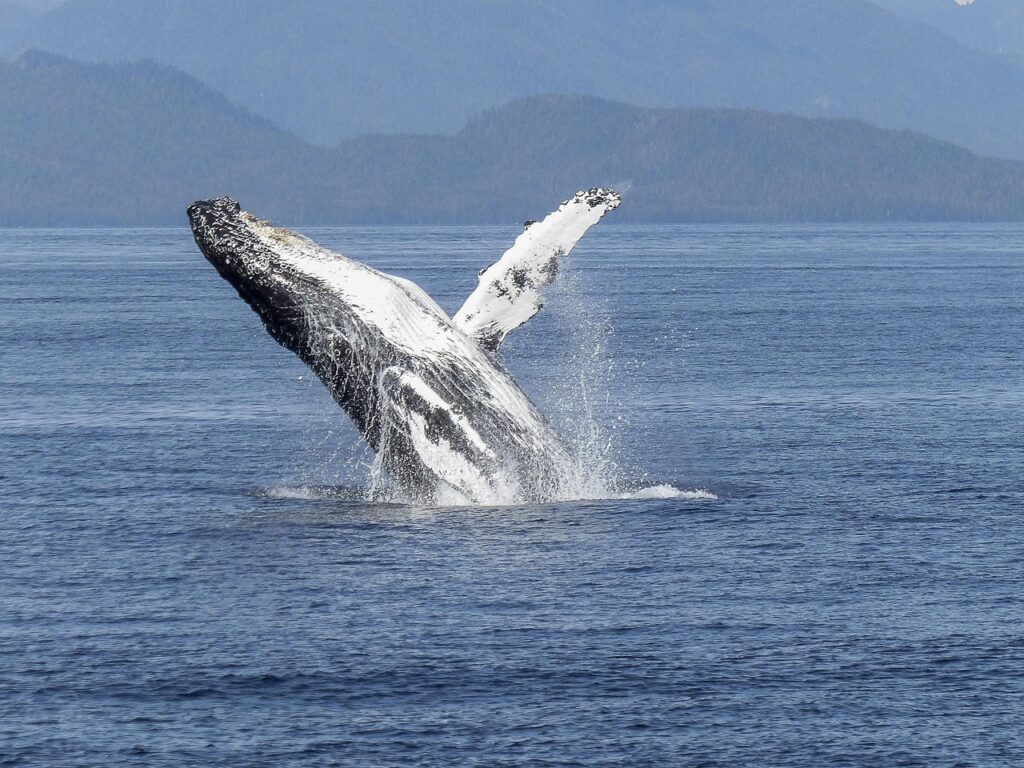Whales do more than just dominate the seas with their massive size—they play a crucial role in maintaining ocean health. A groundbreaking study finds that whales transport essential nutrients across vast ocean distances, not only through their well-known feces but also via their urine. Scientists refer to this phenomenon as “the great whale pee funnel,” highlighting its significant contribution to marine ecosystems.
Whales Transport 4,000 Tonnes of Nitrogen Annually
For years, researchers have understood that whales feed in deep, nutrient-rich waters and excrete waste at the surface, supporting plankton populations. However, a new study led by the University of Vermont reveals another essential function: whales transport nutrients horizontally, carrying nitrogen from cold feeding areas to warmer coastal breeding grounds.
This process is particularly vital for tropical regions where nitrogen levels are naturally low. Scientists estimate that whales deliver approximately 4,000 tonnes of nitrogen and more than 45,000 tonnes of biomass to these areas annually. In ecosystems such as Hawaii’s coastal waters, these contributions exceed the nitrogen supply from local sources.
The ‘Great Whale Conveyor Belt’ Effect
Humpback whales provide a striking example of this nutrient movement. Every year, thousands migrate from the Gulf of Alaska to Hawaii, gathering nutrients from vast oceanic regions and releasing them in smaller breeding zones. This process, likened to a conveyor belt, helps sustain marine life in these nitrogen-deficient waters.
Joe Roman, a co-author of the study, draws a comparison to composting: “Just as compost enriches soil, whales gather nutrients from across the ocean and concentrate them where they are needed most.”
Whales’ Impact on Global Marine Health
Because of their enormous size and long migratory routes—some spanning over 11,000 kilometers—whales redistribute nutrients at an unprecedented scale. Upon reaching their breeding grounds, they release nitrogen-rich urine, an essential resource for marine ecosystems. This process fuels plankton growth, which supports fish populations and, ultimately, the entire ocean food chain.
Before industrial whaling, scientists estimate that these nutrient cycles were three times larger than they are today. As whale populations continue to recover, experts stress the importance of conservation efforts to restore these vital ecological functions.
“Whales act as the ocean’s circulatory system,” Roman states. “Protecting them is essential for sustaining healthy marine environments.”
The Need for Stronger Conservation Efforts
Despite their ecological importance, many whale species remain threatened due to climate change, ship collisions, and entanglement in fishing gear. Restoring their populations could significantly enhance the nutrient cycle, benefiting marine life worldwide.
Marine conservation organizations and policymakers are urged to implement stronger protections for whale habitats. Measures such as reducing ship speeds in key migration routes, minimizing plastic pollution, and enforcing anti-whaling laws can help ensure that whales continue their crucial role in ocean ecosystems.
Whales are more than just ocean giants—they are essential for marine balance. Protecting them ensures a healthier future for the world’s oceans and the countless species that depend on them.


